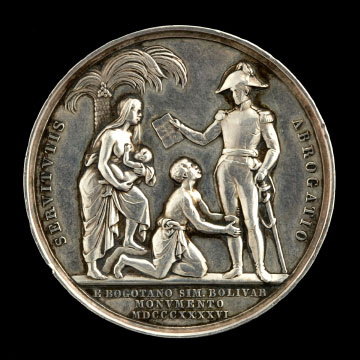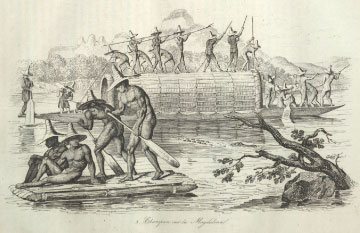Latin American Revolutions


Political upheavals and independence movements shook the foundations of empire in the late eighteenth- and early nineteenth-century Atlantic World. The American, French, and Haitian revolutions brought forth new expressions of individual rights and freedom that began to influence similar actions in the colonies of Latin America.
The origins of the Latin American independence movements of the early 1800s might be traced to changes in imperial administration. After many years of semi-autonomous local rule and limited metropolitan intervention, new bureaucratic reforms in the eighteenth century caused some discomfort in the American colonies. Whatever problems these reforms caused were magnified by French invasion of Spain and Portugal in 1808.Following Napoleon’s disruption of royal power, some Latin American colonies established their own governments. When the Spanish and Portuguese tried to reassert control, their colonies began to move toward independence. The role of slavery and enslaved people in these places would be crucial in defining and maintaining independence.
In Venezuela, for example, the 1811 constitution ended the slave trade, but enforced slavery and racial discrimination. Across South America, political and social actions toward independence gave enslaved people greater motivation and opportunities to work toward their own freedom. When rhetoric turned to warfare, free and enslaved people of African descent became important sources of manpower in revolutionary armies. As had been the custom throughout the revolutionary Atlantic, individual manumission was earned through military service.
The new independent states—places like Argentina, Peru, Colombia, and Venezuela—passed laws to end the slave trade. However, they acted less quickly on the issue of slavery, often legislating schemes for gradual emancipation. People of color who had not won immediate manumission had to fight against legal and social barriers to full freedom, sometimes for decades.
History & Memory
Related Pages:
-
 The Slave Route, Cuba
The Slave Route, Cuba
-
 Salvador da Bahia, Brazil
Salvador da Bahia, Brazil
-
 Rufino José Maria
Rufino José Maria
-
 Plaque commemorating the arrival of the first enslaved people
Plaque commemorating the arrival of the first enslaved people
-
 Slavery and Revolution
Slavery and Revolution

